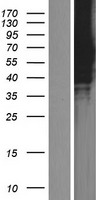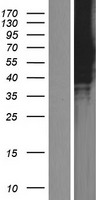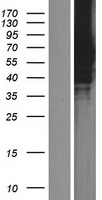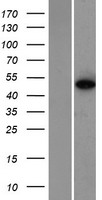order histories, retained contact details for faster checkout, review submissions, and special promotions.
Forgot password?
order histories, retained contact details for faster checkout, review submissions, and special promotions.
Locations
Orders Processing,
Shipping & Receiving,
Warehouse
2 Shaker Rd Suites
B001/B101
Shirley, MA 01464
Production Lab
Floor 6, Suite 620
20700 44th Avenue W
Lynnwood, WA 98036
Telephone Numbers
Tel: +1 (206) 374-1102
Fax: +1 (206) 577-4565
Contact Us
Additional Contact Details
order histories, retained contact details for faster checkout, review submissions, and special promotions.
Forgot password?
order histories, retained contact details for faster checkout, review submissions, and special promotions.
ZNF384
zinc finger protein 384
ZNF384 is a C2H2-type zinc finger protein, which may function as a transcription factor. This gene also contains long CAG trinucleotide repeats that encode consecutive glutamine residues. The protein appears to bind and regulate the promoters of the extracellular matrix genes MMP1, MMP3, MMP7 and COL1A1. Studies in mouse suggest that nuclear matrix transcription factors (NP/NMP4) may be part of a general mechanical pathway that couples cell construction and function during extracellular matrix remodeling. Alternative splicing results in multiple transcript variants. Recurrent rearrangements of this gene with the Ewing's sarcoma gene, EWSR1 on chromosome 22, or with the TAF15 gene on chromosome 17, or with the TCF3 (E2A) gene on chromosome 19, have been observed in acute leukemia. A related pseudogene has been identified on chromosome 7.
| Gene Name: | zinc finger protein 384 |
| Synonyms: | ZNF384, CIZ, CAG repeat protein 1, CAGH1, ERDA2, NP, Nuclear matrix protein 4, Zinc finger protein 384, CAGH1A, NMP4, TNRC1 |
| Target Sequences: | U80760 AAB91437.1 Q8TF68 |









If you do not find the reagent or information you require, please contact Customer.Support@LSBio.com to inquire about additional products in development.









